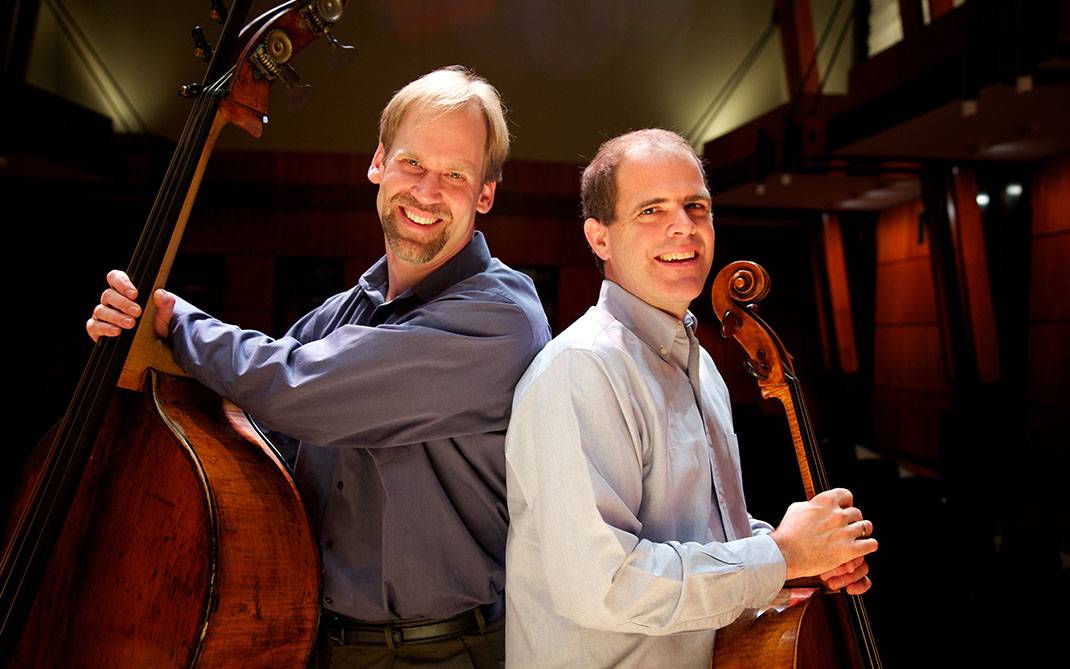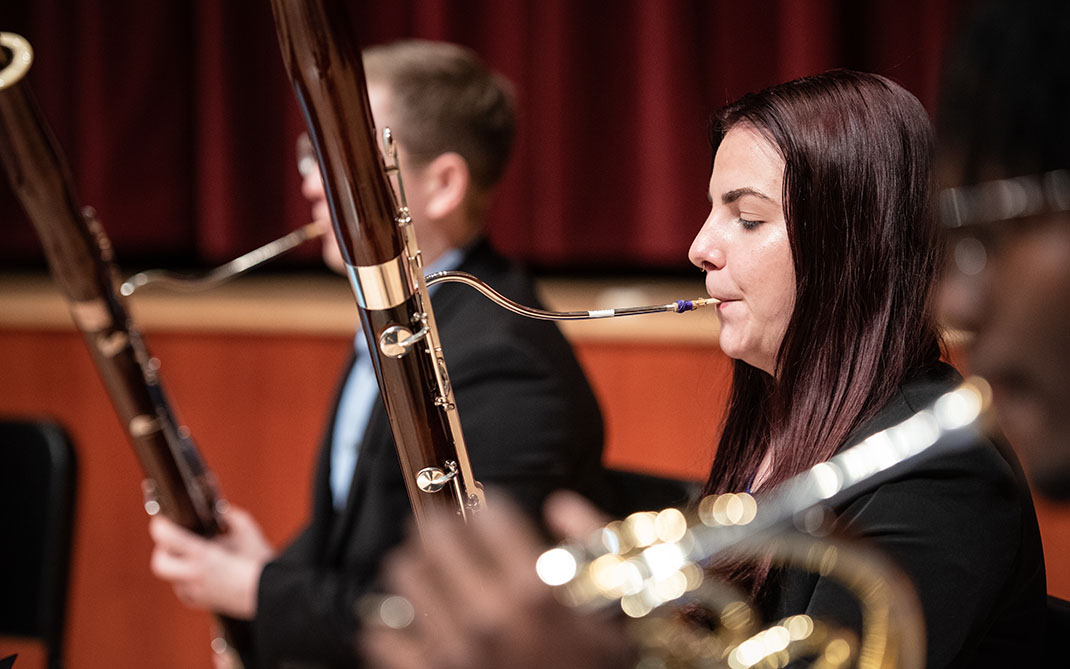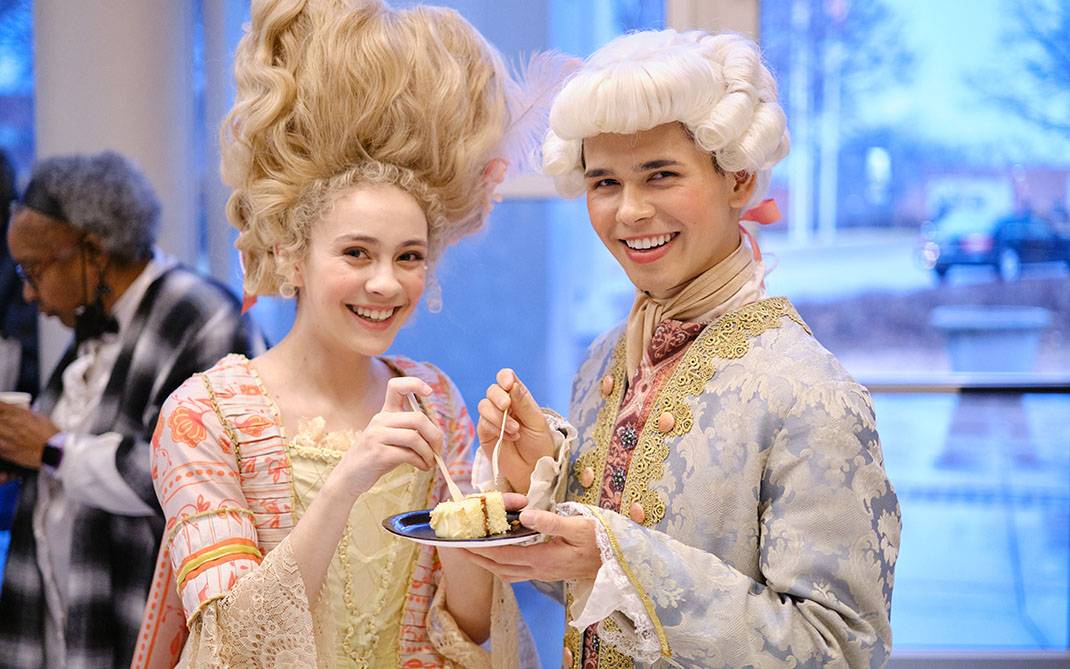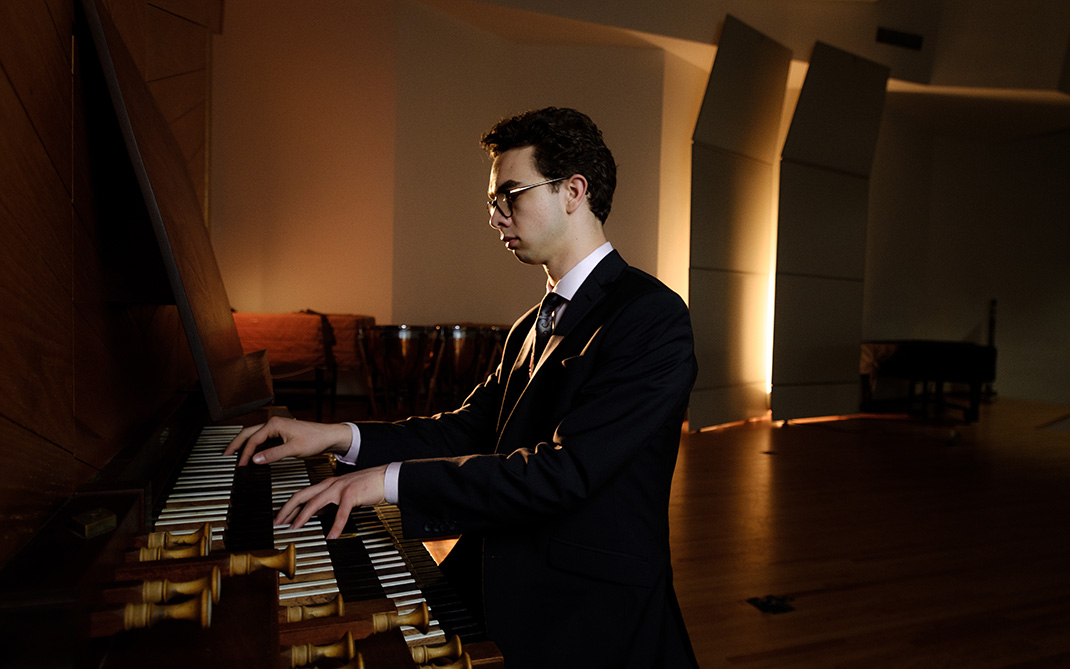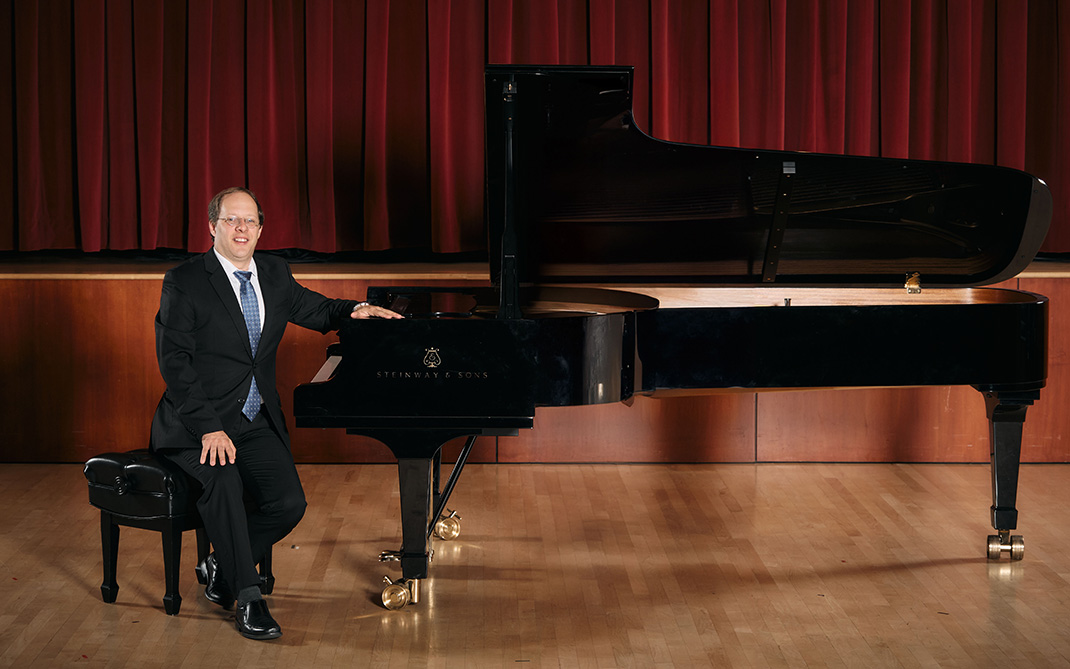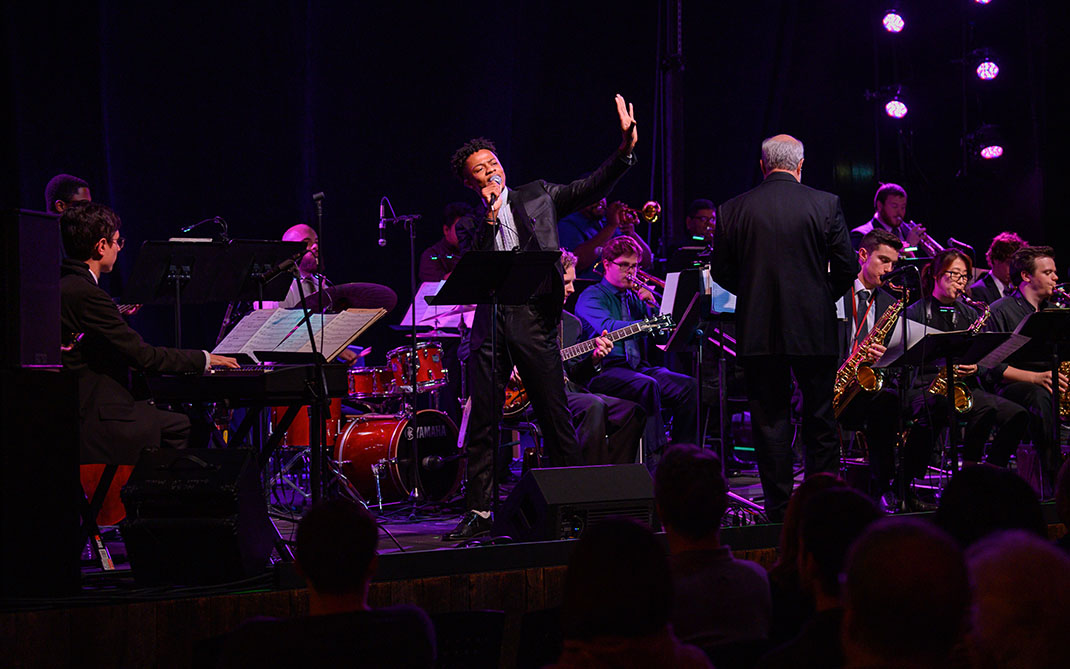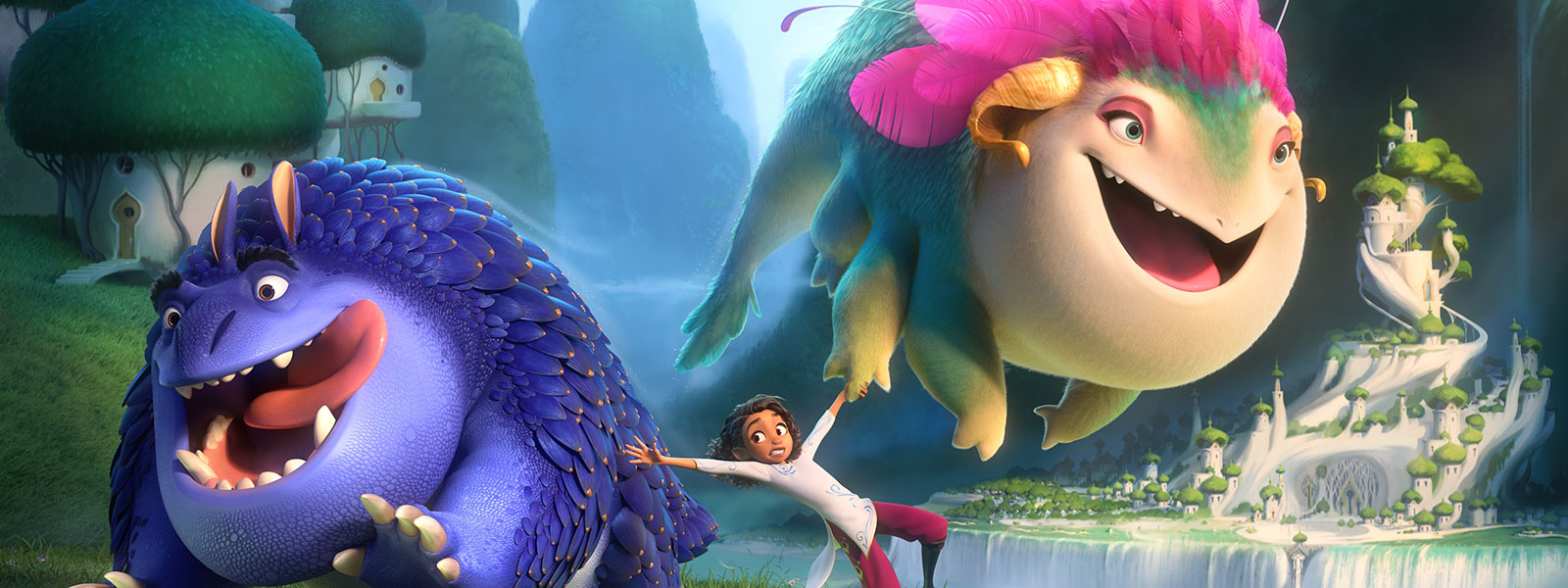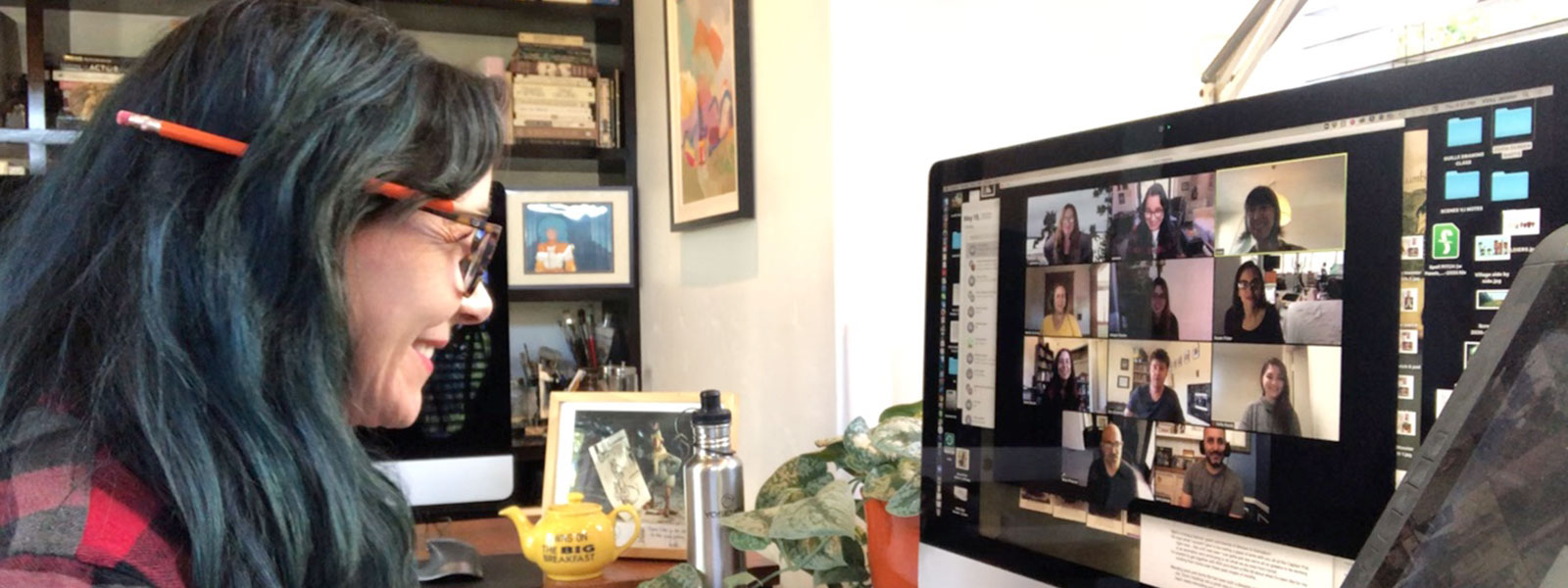Vicky Jenson
The views and opinions expressed by speakers and presenters in connection with Art Restart are their own, and not an endorsement by the Thomas S. Kenan Institute for the Arts and the UNC School of the Arts. This interview has been edited for length and clarity.
Vicky Jenson started painting backgrounds for Hanna-Barbera cartoons and rose through the ranks of the TV and film animation business until DreamWorks hired her to co-direct a feature animation. Upon its release in 2001 the movie proved to be a juggernaut. Its title is “Shrek,” and not only did it win the first-ever Academy Award for Best Animated Feature and gross over $267 million in 2001 alone, but it also spun off three sequels, several video games and even a Broadway stage adaptation.
Vicky went on to co-direct the Oscar-nominated “Shark Tale” and also to direct several live-action projects in the worlds of film, television and advertising. She is currently hard at work on her latest project, a new animated film she is directing for Skydance Animation that is scheduled to be released in November of 2022.
In this interview with Rob Kramer and Pier Carlo Talenti, Vicky discusses the unexpected ways in which the pandemic has affected the making of her new film and how the recent reckoning on gender and race disparity in Hollywood is finally standardizing the inclusive and welcoming atmosphere she always created on her own projects.
Choose a question below to begin exploring the interview:
- Would you please tell us, as much as you’re able to, about the movie you’re currently directing?
- It seems like certainly your work hasn’t really slowed for you as it has for other artists because of COVID, Broadway being a great example. But have you had to go about your business in a different way?
- Are there other aspects of what you learned about continuing to work through COVID that you think will remain once life returns to whatever normal is?
- Speaking from your experience as a filmmaker and an artist and a woman, are there things about the systems that surround your work that you’d like to see change?
- Given these discussions that have been going on at Skydance, have you learned something you didn’t know before? Are you finding that you’re working slightly differently as a result?
- What do you see as your role as an artist leader?
- As you were changing the culture of how your movies were made, did you encounter resistance, and how did you stand up to that resistance?
- What do you see as the role of storytelling in effecting change?
- You described yourself as being unafraid to make herself heard. What advice would you have for an artist who did not have that same quality as you but had the same talent?
- Is there any advice you wish you had received when you were starting off, not only getting into this field but also getting into leadership roles?
Pier Carlo Talenti: Would you please tell us, as much as you’re able to, about the movie you’re currently directing?
Vicky Jenson: Yes. We just recently announced officially the movie’s partnership with Apple. It’s called “Spellbound.” I can say that it is a fantasy following the journey of a young girl as she navigates an evil spell that has befallen her kingdom and threatens everyone. It is a musical. It’s with Alan Menken and Glenn Slater, a longstanding team. Really so much fun.
We were very lucky to do a traditional music retreat before the world changed. It really proved invaluable to sit with our two writers, Elizabeth Martin and Lauren Hynek; and my editor; my head of story; our producer; Alan and Glenn; the music producer, Chris Montan, and just sit together and talk about the movie and its meaning and where ideally songs might be placed and what they could do. It was just such a fun, fun, eye-opening experience.
Pier Carlo: And had you been able to record the actors before the pandemic?
Vicky: No. No, not at all. Once music began, once Alan and Glenn started working on the songs and we were heading into our first demos for a screening last September, everything was recorded in this new world. And it was wild! We were shipping equipment to people. All of Broadway was suddenly available, which was pretty cool for us. [She laughs.] But they’re in their closets, trying to peek out at us between the coats to keep the echoing down. They just sound amazing. The demos just sound amazing even at this stage.
Rob Kramer: It seems like certainly your work hasn’t really slowed for you as it has for other artists because of COVID, Broadway being a great example. But have you had to go about your business in a different way?
Vicky: First of all I have to say we are incredibly lucky in our industry and in animation that, although it is really one of the most collaborative forms of filmmaking there is, we were able to continue almost without any true bumps. Everyone went home, but everyone always works on their computer anyway, so in some ways it was weirdly more efficient. The commute time was gone, the walking between offices was gone, and in an odd way I found myself closer to some of the artists.
I’m working with artists in Madrid. Our animation team is there; our lighters are there; and half our story team is in Madrid, and they’re nine hours ahead. Before the pandemic, I would have conference meetings with them. We’d be sitting in our screening room, and they’d be in their screening room to show their work, and I would see dozens of faces in the dark on Zoom. Then after the pandemic, because everyone’s at home, suddenly I’m seeing all their faces nice and close. It’s just much more one-on-one with the team in Madrid, and to me that was awesome. That was great. I felt like I could really work one-on-one with folks and there was no go-between.
I think for a lot of artists, there was some comfort in working in your own workspace. ... In a large way, it really didn’t slow us down.
I think for a lot of artists, there was some comfort in working in your own workspace. The company sent everybody home with company computers, with people to help them figure out … they would jump onto your computer and help you figure things out and set it up. And then the Zoom meetings began.
In a large way, it really didn’t slow us down. I think that was true for some friends of mine on “The Simpsons” and other people, a real close friend of mine who does key animation on shows like “Supergirl.” None of that stopped, because we’re not dependent on being face-to-face. Now, some things are certainly better face-to-face, like brainstorming, being able to sit in the same room, take the movie apart, put it back together again, throwing Post-its up on the board or taking an idea and everyone’s sketching out gags. That stuff is so important one-on-one.
But the biggest one, I would have to say, is screenings. Screenings in this world, I think the experience suffers. I mean, the reason we go to the movies is to share an experience, to share laughter, to hear other people’s sniffling at the emotional parts. And that doesn’t happen this way. We’re all screening super secretly, and very, very securely, but all alone.
Pier Carlo: Oh, so for the recent screening that you had, each person was at their own monitor watching the film at the same time?
Vicky: Yeah. Virtually the same time. And that is hard, because the most exciting experience that you can have in your life in animation is sitting with an audience for the first time and hearing them react and participate in the movie. And we don’t get that. So I would love one day to find some way we can continue to do that, whether it’s an outdoor venue or something where at least we can be together on certain occasions. I think that’s going to happen when we move forward. We’ll have a hybrid of a studio/at-home kind of arrangement. We’ve been already talking about it at Skydance.
Rob: That’s what I was wondering. Are there other aspects of what you learned about continuing to work through COVID that you think will remain once life returns to whatever normal is?
Vicky: I think that the flexibility of having workdays at home and some studio days, it’s really evident that there’s such an advantage to it. I think people are very, very productive if they’re not taking all that time to commute. If they’re not dependent on being in a studio, it actually can open up our talent pool. It was hard to get some people to come across the Santa Monica Mountains to come work with us on Wilshire even, let alone when the studio moves out toward Culver City. So many of the animation studios had popped up in Glendale that people bought their homes there, their kids go to school there.
No one has the expectation that when they’re hired at a studio that will be their job for life. It’s just not the ’50s and ’60s anymore. So people need to know that they can live somewhere and be able to move from studio to studio as the projects require. Not all studios have a commitment to keep people on in between. They used to; we called it “gap” at DreamWorks. But it’s just sort of not as feasible, I’m sure, as it once was. You work on one movie for three years and hope to work on another project at that studio, but you can’t be guaranteed that. Then you move to another studio out of necessity, or perhaps you have an opportunity for moving up to a different position. It’s super-handy if they happen to be near each other! [She laughs.]
Rob: As you know, the podcast is called “Art Restart,” and we often will explore changes that artists would like to see happen in their industry or in the systems that surround their industry. Speaking from your experience as a filmmaker and an artist and a woman, are there things about the systems that surround your work that you’d like to see change?
Vicky: Well actually I’m seeing them very actively change already.
Rob: What are you seeing?
I like to believe that mankind can move forward, that people can move forward and evolve, and if we can’t expect one person to evolve, I don’t know how we expect a society to evolve.
Vicky: Well, I’m seeing, for instance, at Skydance, even before #MeToo — well, probably in concert with #MeToo — a huge awareness and desire to open up the studio, open up the dialogue. We had very free and vocal town-hall meetings at our studio during that whole period. John Lasseter joined us, and he was part of this focus. I like to believe that mankind can move forward, that people can move forward and evolve, and if we can’t expect one person to evolve, I don’t know how we expect a society to evolve. So it took time and a lot of effort on the studio’s part to make us feel comfortable having John join us. He made huge, huge efforts to do the same thing.
And I feel like in a lot of ways our studio is at the forefront of inclusion, of discussion, of social involvement. It really adjusted even the type of stories that the studio decided to tell, based on how we were reacting to the world. I think with my movie in particular — I can’t really give too much away — but it has a very strong social and personal element to it. It’s dealing with a topic that isn’t usually dealt with and I don’t think ever has been, certainly in a huge animated movie. Because for me, meaning is what I want to lead with.
I come from a world in animation where stories would evolve out of, say, an arena. “What about a story about shadows or sports teams that are actually made up of the mascots that the sports team has? And OK, that’s a big concept.” And everyone would say, “Just let the movie tell you what it wants to be about.” It feels very ass-backwards. [She laughs.]
When I came to Skydance, it’s because they pitched a couple of movies at me, and the one I gravitated to led with meaning. It had purpose; it had a story to tell. It was my job to figure out how to tell that story. And we pulled out all the details that had nothing to do with this core emotional issue or the key story that had something to say.
When John [Lasseter] came in, he further aided that process of weeding out everything in that complicated story and getting it down to, what are we trying to say? What is most important here? What will the audience feel? And our story room was wide and inclusive. Everyone could speak. There wasn’t any of that sort of bro atmosphere that I heard so much about that happened at Pixar. It wasn’t a brain trust anymore; it was a story trust. And it was quite a big group.
Then we started inviting speakers in to talk to us about unconscious bias and about representation and who could tell whose stories, which is a nuanced discussion that happened after Black Lives Matter. It wasn’t so much just about representation but that that representation is authentic and told by people that understand it. And that’s different. Back in the day you could see a movie or a TV series where a Hispanic character was there, a Black character was there, but the storytellers were all white and the writers were all white and those characters were what those white voices interpreted those voices of color would be. And you just don’t do that anymore. And I feel like I’ve never been in a studio where that conversation was so candid and so important and so present.
Then it continues. I mean, even just a couple of days ago, we had two different really awesome panels at Skydance on these kinds of subjects of talking to some of the elite black writers in Hollywood for their perspective on things like representation. And it was amazing. We were sounding out … it was like, “A whitewash representation or no representation?” And they’re like, “No representation! That’s the choice. It’s got to be authentic.” And I totally respect that. It’s just been amazing. It’s been like going to college all over again. It’s just the education doesn’t stop.
I was raised by very socially aware parents, good, upstanding communists, I’ll say that [laughing], but with the ideals of communism, which was we’re here for each other and we have to build this world together. That’s what they believed. And if you are going into the arts, it’s because you want to continue the great conversation of art and what it does for our kind, for humankind, and for the world, not just to sell toys. And I feel, oddly — even though this studio is as profitable as it is, it has huge movies behind it — that’s the approach here for Skydance Animation. It’s stories that mean something.
Pier Carlo: Given these discussions that have been going on at Skydance, have you learned something you didn’t know before? Are you finding that you’re working slightly differently as a result?
Vicky: Yes, I think, to all of that. I thought I was a fairly educated and socially aware and responsible person. I lived through my own experiences of misogyny in our industry. I lived through feelings of denial about it. When I came into this industry, I accepted things the way they were. I was one of a couple of women at the time and surrounded by men who just … off-color humor and harassment. And I just sort of like, “Well, I guess that’s the way the world is. I’ve just got to get used to it and play with the big boys. That’s how it is in the big-boy pool.”
So I just thought, “That’s the world, and I just have to be an aggressive monkey and do the same thing.” Not treat other people that way, but to play on that playing field, I just needed to be tough. And it took me a long time to recognize it doesn’t have to be like this.
I just never gave it a thought until it just kept adding up and adding up. I wasn’t defeated by it. I worked hard. I’m a talented person. I’m a very opinionated person. I’m loud. I’ve got brothers. I’m not easily knocked off my feet. So I just thought, “That’s the world, and I just have to be an aggressive monkey and do the same thing.” Not treat other people that way, but to play on that playing field, I just needed to be tough. And it took me a long time to recognize it doesn’t have to be like this.
Even when I got on my first movie set, I ran it differently, and men would come up to me all the time and say, “It is so wonderful to be here, and on this set. I have never seen people jump through hoops like they do for you.” Because I’m not leading with fear. I’m leading with inclusion and kindness and talking about what the movie’s about. And then even your props people come up and go, “Oh look, I found this little ashtray, and I think it talks about the family, because, see, it’s a circle and you were talking about the family being ... .” Everybody gets involved. They all feel excited when you value what they do.
Rob: Vicky, what do you see as your role as an artist leader?
Vicky: Well, I’ve been doing guest teaching, and I guess I see there’s a way to lead other artists in how to approach stories, how to be true to your own style, and understand that if you are an artist who wants to be a director or a writer or a creator of some kind that there’s more to bringing people on board your ship than just creating the content. There’s a way of working with people. This is a team sport, and there’s a respect that you need to function with. It takes people a long time to get there. Kids don’t want to hear all that stuff initially. They just want to make their short. [She laughs.] You can see some of them going, “Yeah, yeah, yeah.”
It’s the same thing, working with actors. In my industry acting and the actor were just a means to the end of animation. The understanding was, “They’re just a voice, and the most important thing is the animation.” And I think that I helped change that viewpoint, at least where I was working, in how I worked with the actors as just as valuable an aspect of storytelling, working with actors in a way that they’re used to working, not forcing them into our needs with line-by-line recording but rather working in broader strokes like you would in a rehearsal for film. So it’s not voice acting; it’s acting. It’s the same. You want it just to be as true as it would be if they’re on camera.
I think in a lot of these ways, I’m hoping to lead others to these awakenings earlier than I got them, but you can only really point people in that direction and they have to find it themselves.
Pier Carlo: As you were changing the culture of how your movies were made, did you encounter resistance, and how did you stand up to that resistance?
Vicky: The way I was working with actors? Well, there was some resistance at the time. I had a couple of male coworkers that didn’t really understand why I was pushing an actress to find more colors. Perhaps, like the song of the siren, they were wooed by her amazingness. I’ll say it was Angelina Jolie and the first recordings of her on “Shark Tale.” My male co-directors were like, “She sounds great! She sounds great!” And I’m like, “I don’t know. She just keeps doing the same thing, and I want to get more out of it. We know she can seduce — that’s great; that’s awesome — but can she do some other things? Can this character do some other things?” And I kept pushing and pushing.
In fact that night, I think she was on “The Tonight Show” or something like that, and she ended up repeating back some of the session that we had. She’s like, “Today I learned that I scare men.” [She laughs.] Because I had said to her, “All right, well, that’s wonderful. You’re scaring him, though. I wonder what would happen if you tried to, you know, take his side and play with him on this aspect.” She’s like, “I scare him?”
Rob: Vicky, you see what happens when you give artists notes?
Vicky: I know. They’re adjustments. When you’re talking to actors, they’re adjustments, not notes.
Rob: Right. Adjustments.
Vicky: So anyway I think that my two co-directors were under her spell. And when we got back to the studio and the editor was playing with the takes and we didn’t have the benefit of her video in front, the two of them were like, “Um, she sounds the same in every take.” I’m like, “Yes. That’s right. She does.” So anyway, that’s a different kind of resistance.
Rob: What do you see as the role of storytelling in effecting change?
Vicky: Everything. You think back to the stories, the movies that shaped you as a kid. Even in your teens, you look to music and songs and movies as some kind of guide to how to live your life, how to find love or how to act when you’re in love.
We look to stories for everything. I think it’s part of mankind’s history. Mythology is storytelling, and these myths last because they define these milestones and aspects to being human, these passages. These myths live on and evolve because they continue to speak to us. And we’re creating new mythology; that’s what storytelling is.
We look to stories for everything. I think it’s part of mankind’s history. Mythology is storytelling, and these myths last because they define these milestones and aspects to being human, these passages. These myths live on and evolve because they continue to speak to us. And we’re creating new mythology; that’s what storytelling is.
So the one I’m working with now, there is an allegory here. We’ve chosen to work with an allegory for the life situation that’s happening in the film because it will reach deeper and sneak up on you. And it’s not a Lifetime movie-of-the-week or disease movie-of-the-week or something like that where you’re like, “Oh God, do I really want to watch a movie about ...?” It’s finding what’s archetypal in the experience, what is universal in the experience of being human.
I love how different stories can take a single aspect of our shared experience and illuminate that, where people go, “That’s true!” More than teaching lessons, stories help you recognize truths at their best.
Pier Carlo: You described yourself as being unafraid to make herself heard. What advice would you have for an artist who did not have that same quality as you but had the same talent?
Vicky: Well, there’s great power in silence too. If you find yourself in the room and in the position that … . Let’s say a young female creator has sold a show to Hulu or Netflix or something. That’s the strength to start with, and you don’t have to be swayed by the louder voices in the room. Hear them, take it all in, consider it and then speak. Your words will be louder than anything.
There are plenty of people I know, male and female, that speak just to fill up the room, just to fill the space, to prove that they have a reason to be there. It’s hollow, and you can feel it. I know one filmmaker who’s very soft-spoken, and she’s amazing. [“Kung Fu Panda 2” director] Jennifer Yuh Nelson. She’s very Zen, very quiet, very careful with when she chooses to speak. And it’s very powerful.
Rob: Is there any advice you wish you had received when you were starting off, not only getting into this field but also getting into leadership roles?
Vicky: I wish somebody said, "You should direct," when I was, like, 17! [She laughs.] It took me until I was in my 30s to realize I really wanted to direct. It just suited me so well. I’ve always had such varied interests from ballet, flamenco, cello, singing. Fencing! All these things I do. And then when I stumbled onto this, the fact that directing allows you to become kind of an expert at anything without actually being the one up there doing it, it was fantastic! I’m involved with the composers, with the music, with the writers, letting everyone do what they do best but guiding like a conductor in an orchestra. That just suited my temperament.
Rather than being told, “You should just focus on one thing, and you’ll be really great at that.” I just couldn’t do it. I couldn’t do it. So it kind of would have been cool if someone had said, “Well, maybe you should try directing.”
March 8, 2021
